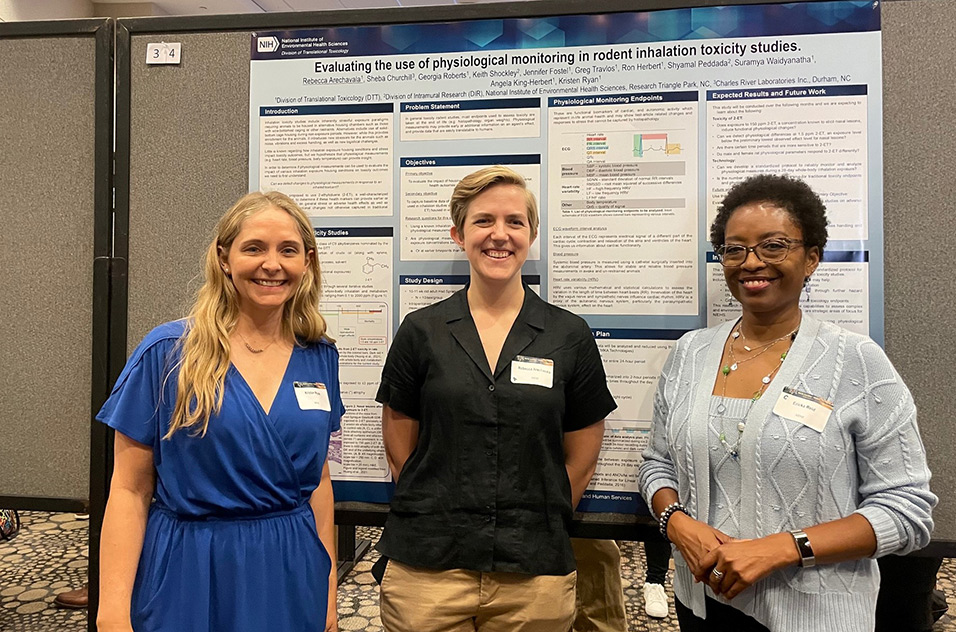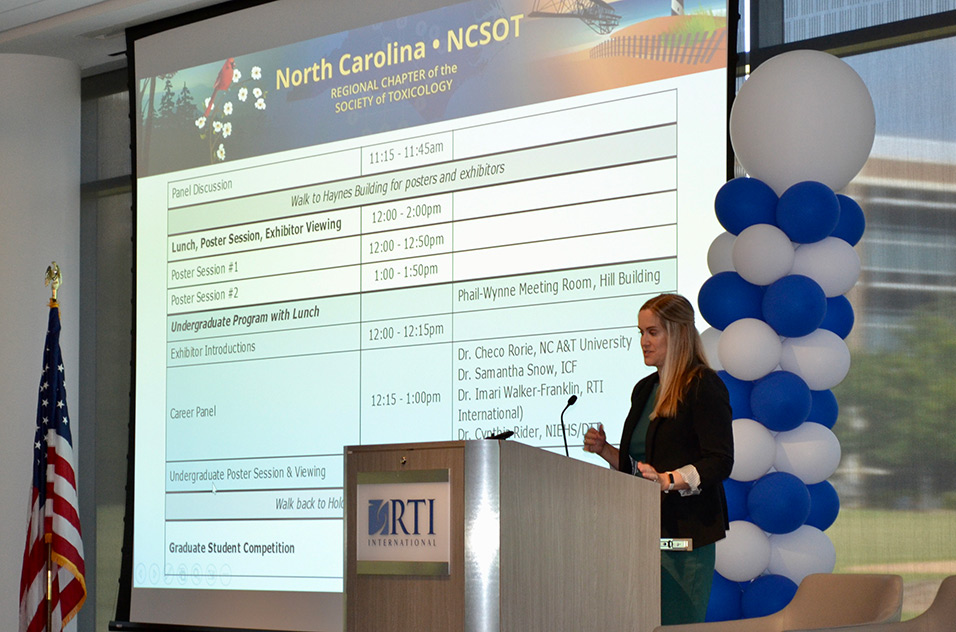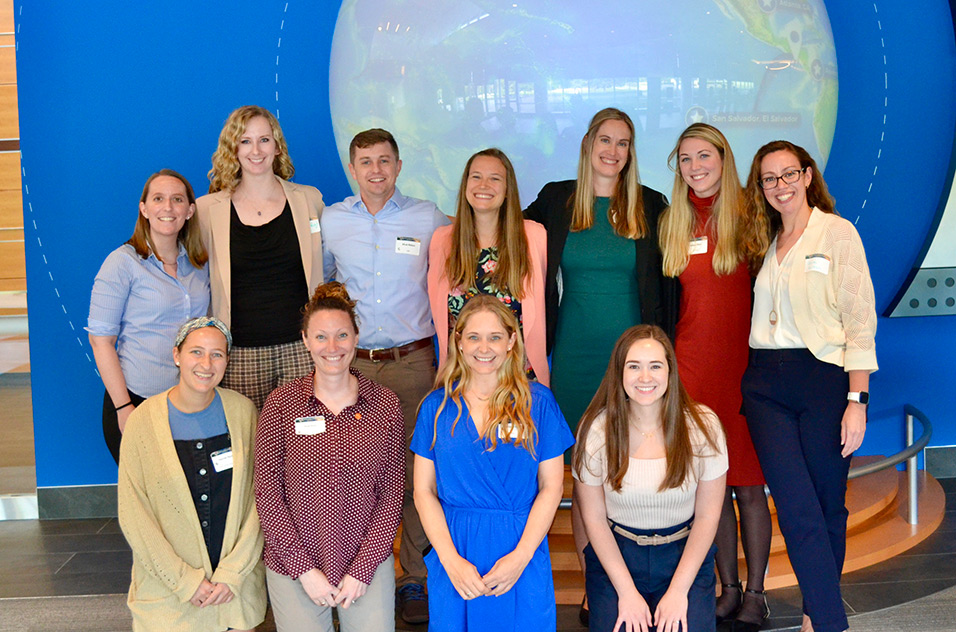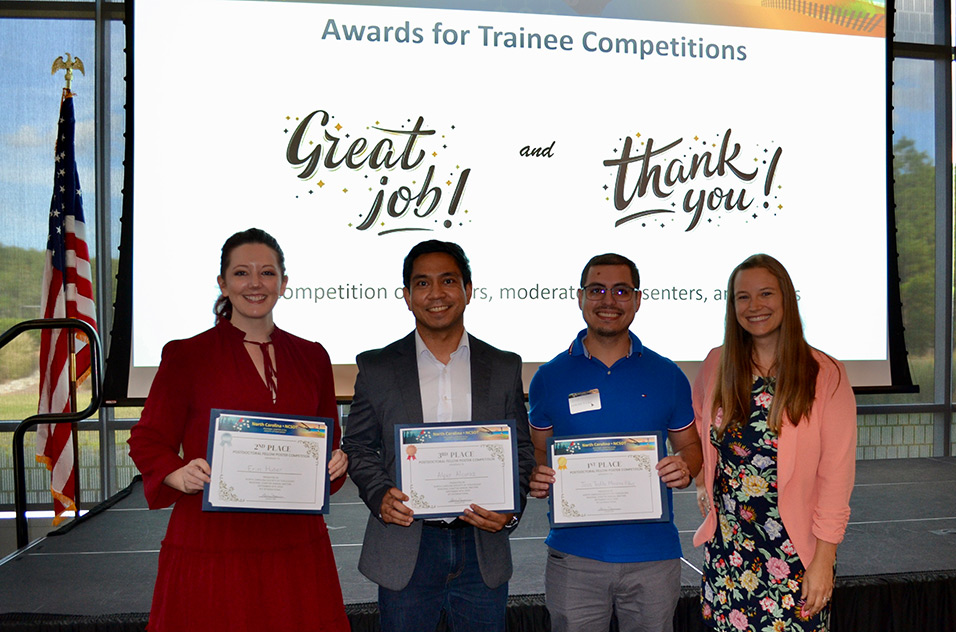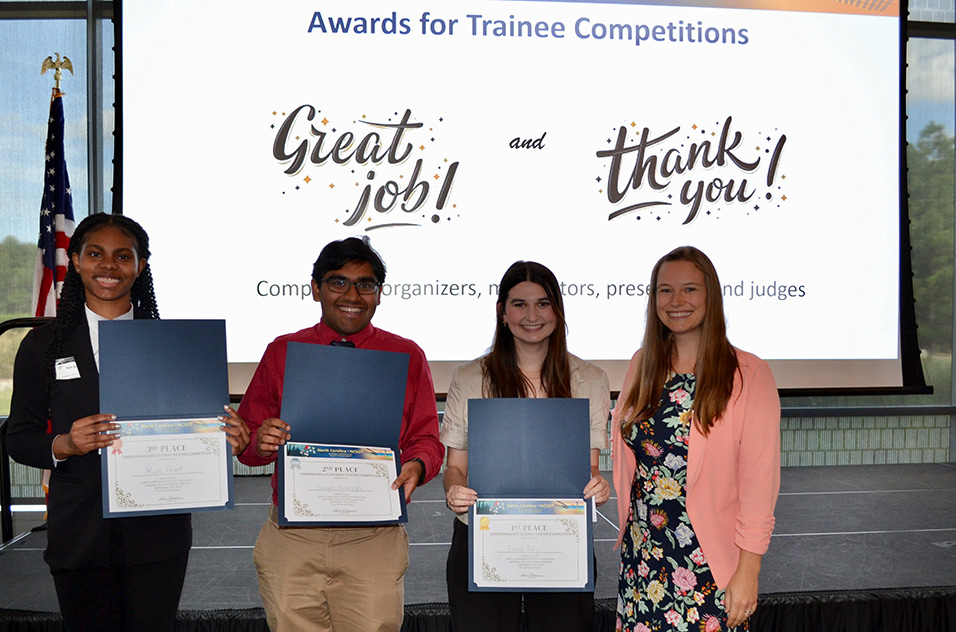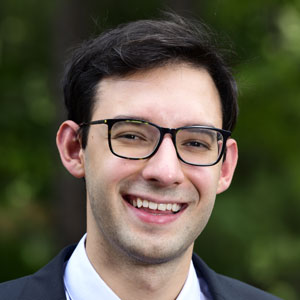Scientists, including NIEHS staff, grantees, and trainees who work to identify how chemicals may cause harm, gathered Sept. 14 for the annual North Carolina Society of Toxicology (NCSOT) meeting.
Nearly 300 people — a record number of attendees — presented new research about toxicants in the environment, such as PFAS and particulate matter, and participated in panel discussions, including an undergraduate career panel with NIEHS participants. They also networked at the event, which was held at Research Triangle Institute (RTI) International headquarters in Research Triangle Park, North Carolina.
“Everyone is doing significant work with approaches that can be very complementary,” said NCSOT President Anika Dzierlenga, Ph.D., health scientist administrator in the NIEHS Division of Extramural Research and Training (DERT) Genes, Environment, and Health Branch. “This meeting helps forge new collaborations. It can also be fruitful for trainees trying to network and ascertain future career directions.”
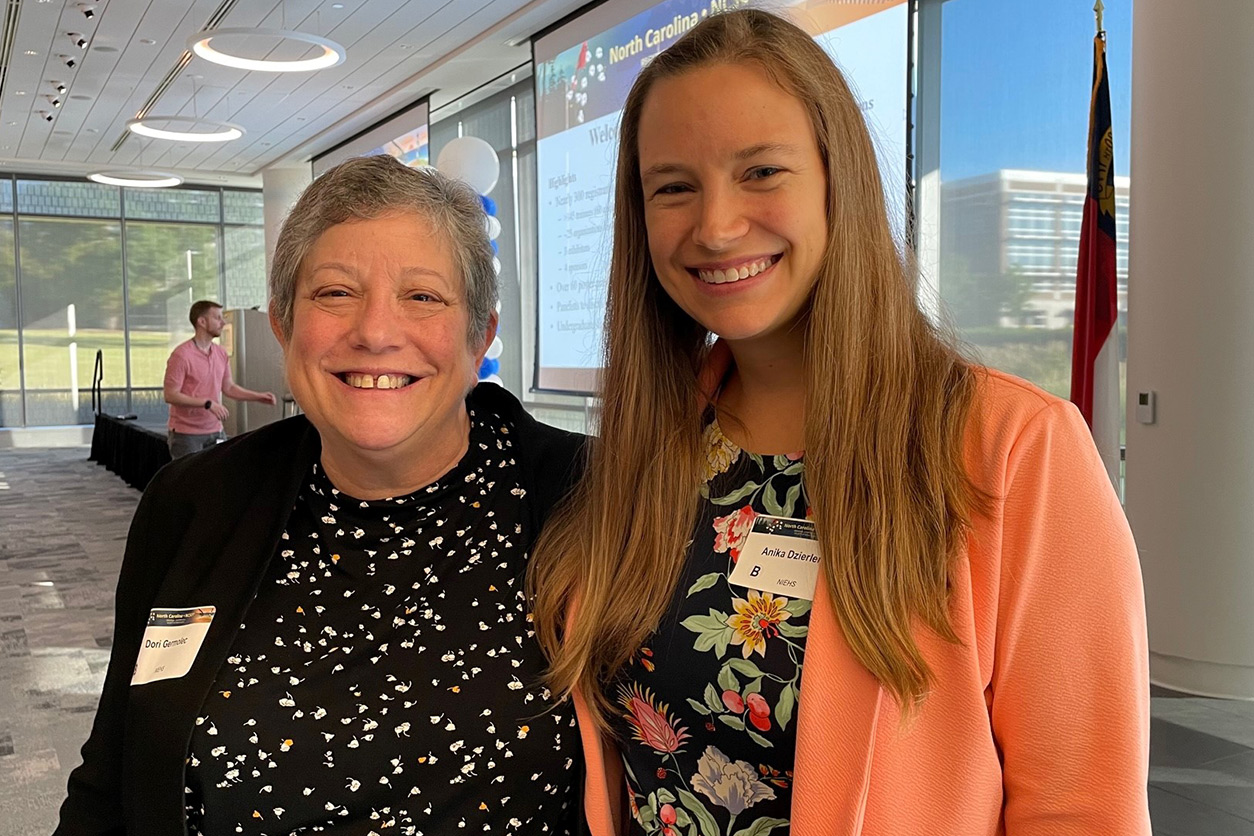
Protecting the most vulnerable North Carolinians
Three researchers presented different perspectives on toxicants, public health, and environmental justice, and they also participated in a panel discussion.
NIEHS grantee Jamie DeWitt, Ph.D., who at the time of the meeting was a pharmacology and toxicology professor at East Carolina University, gave a talk on PFAS in the Cape Fear River. The river serves as a source of drinking water for many North Carolinians. Research suggests that the persistent, synthetic PFAS chemicals can damage the liver, disrupt the immune system, and impair childhood development.
“There are many concerns in communities across North Carolina with respect to PFAS exposure,” said DeWitt, who was recently named director of the Environmental Health Sciences Center at Oregon State University’s College of Agricultural Sciences.
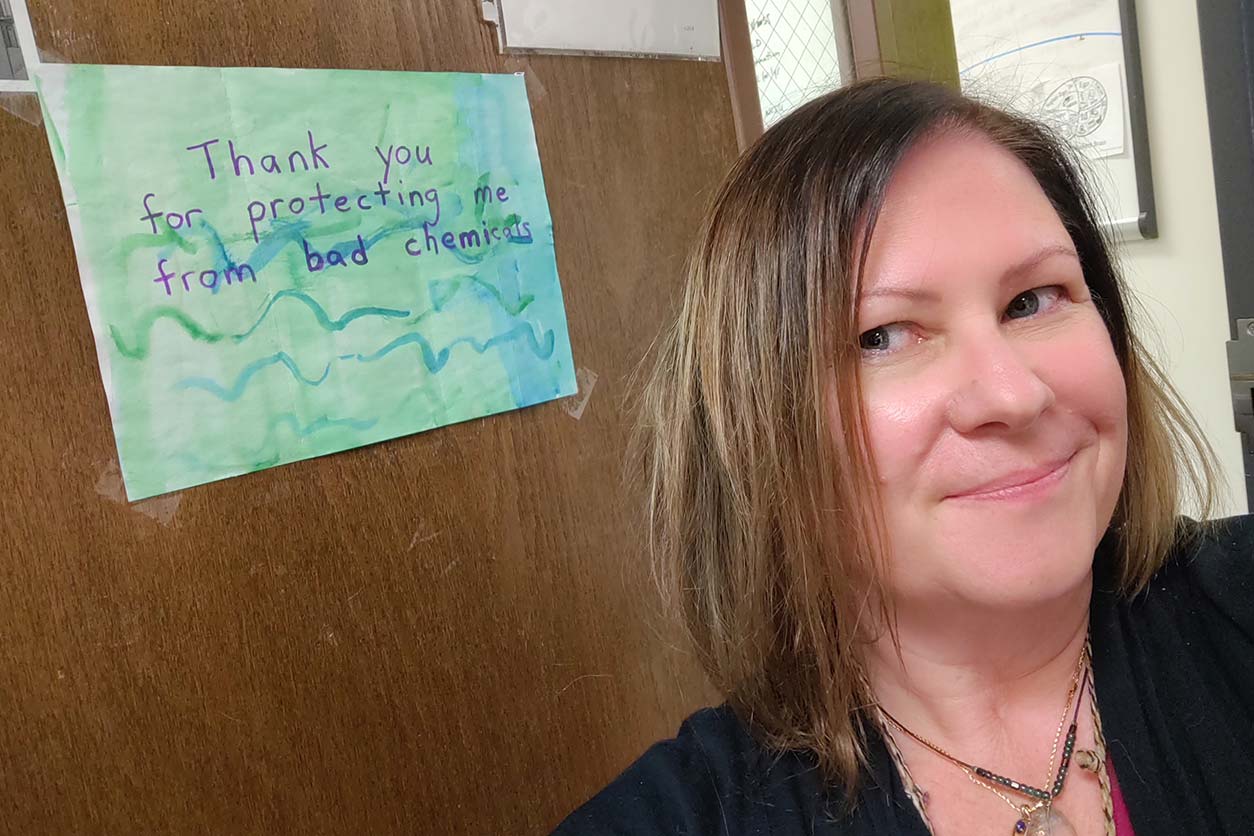
PFAS contamination is also concentrated in certain locations, said Frannie Nilsen, Ph.D., a toxicologist at the North Carolina Department of Environmental Quality. She presented strategies for monitoring PFAS levels in the environment, particularly along the Cape Fear watershed.
John Bang, M.D., Ph.D., an environmental, earth, and geospatial sciences professor at North Carolina Central University, spoke about how air quality varies depending on location. For example, modeling shows that ambient air quality is lower near roadways. Bang is now researching air quality differences by census tract, a project funded by NIEHS and the Research Centers in Minority Institutions program at the National Institute on Minority Health and Health Disparities.
Naturally occurring contaminants can also disproportionately affect certain communities, said Crystal Lee Pow Jackson, Ph.D., a research environmental scientist at RTI International. High concentrations of metals in some unregulated drinking water sources, such as wells, represent one environmental injustice that persists in the state, she said.
The panelists agreed that collaborations between academic institutions, state agencies, and nonprofit organizations could help provide data needed to protect those most vulnerable to environmental toxicants.
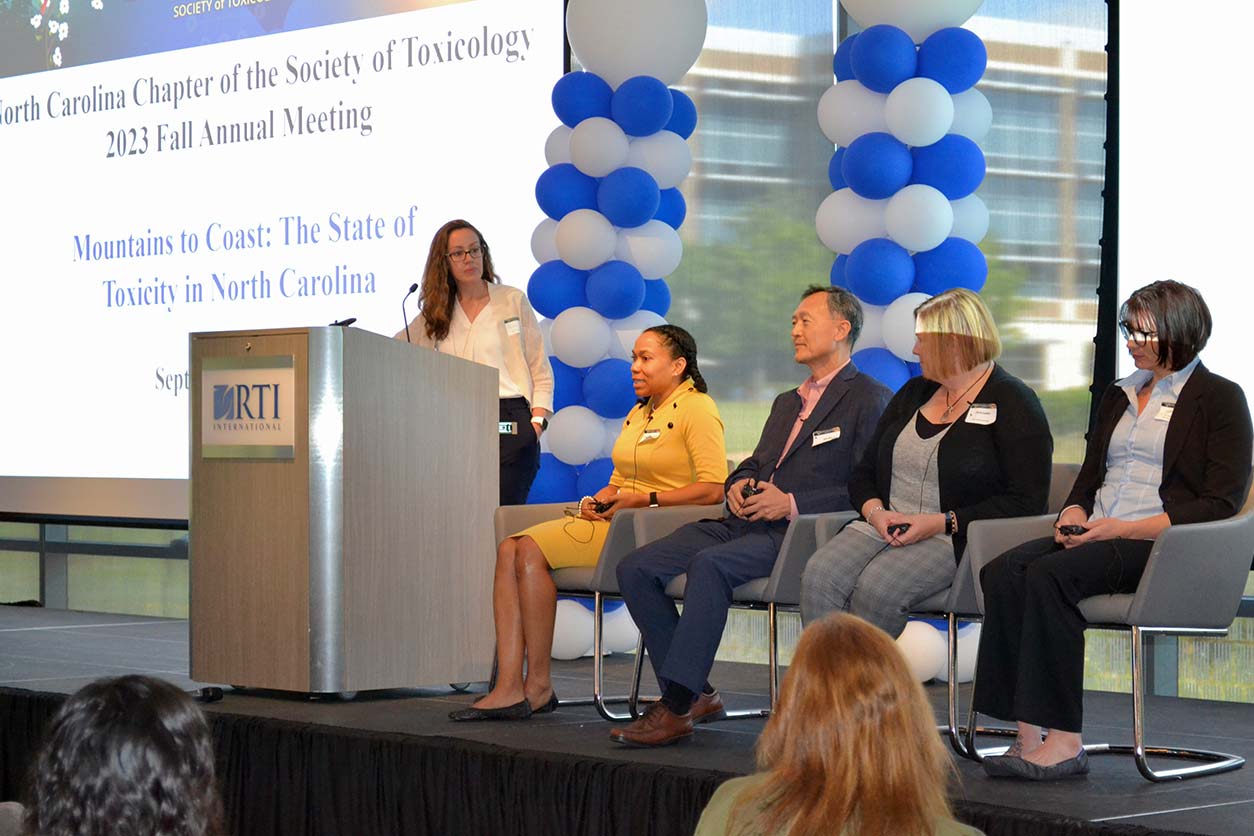
Poster presentations
More than 70 posters were presented during the meeting and considered for awards. Stephanie Smith-Roe, Ph.D., a genetic toxicologist in the NIEHS Division of Translational Toxicology (DTT) Systems Toxicology Branch, as well as nine NIEHS scholars and trainees, presented posters. Three won awards.
- Fiona Daly, an NIEHS scholar at North Carolina State University, won first place in the undergraduate student poster category.
- Jose Teofilo Moreira Filho, Ph.D., an NIEHS postdoctoral researcher, won first place in the postdoc poster category.
- Alper Alcaraz, Ph.D., an NIEHS postdoctoral fellow, won third place in the postdoc poster category.
Professionals from different sectors, including academia and government, care about the latest in toxicology in North Carolina, said NCSOT Vice President Kelly Shipkowski, Ph.D., a health science evaluator in the DTT Office of Program Operations.
“This meeting is a good opportunity to bring everyone together and talk about what's going on and what we can do to make it better,” she said.
(Susan Cosier is a contract writer for the NIEHS Office of Communications and Public Liaison.)





